
Have a question? Call now! +1 646 810 8764

Welcome to Luxury Lifestyle Awards!
Would you like to talk to one of our award managers about nomination of your company?
Our team is happy to help with any questions you may have.
Call: +1 646 810 8764 Send Email Live Chat Contact Us15.03.2022
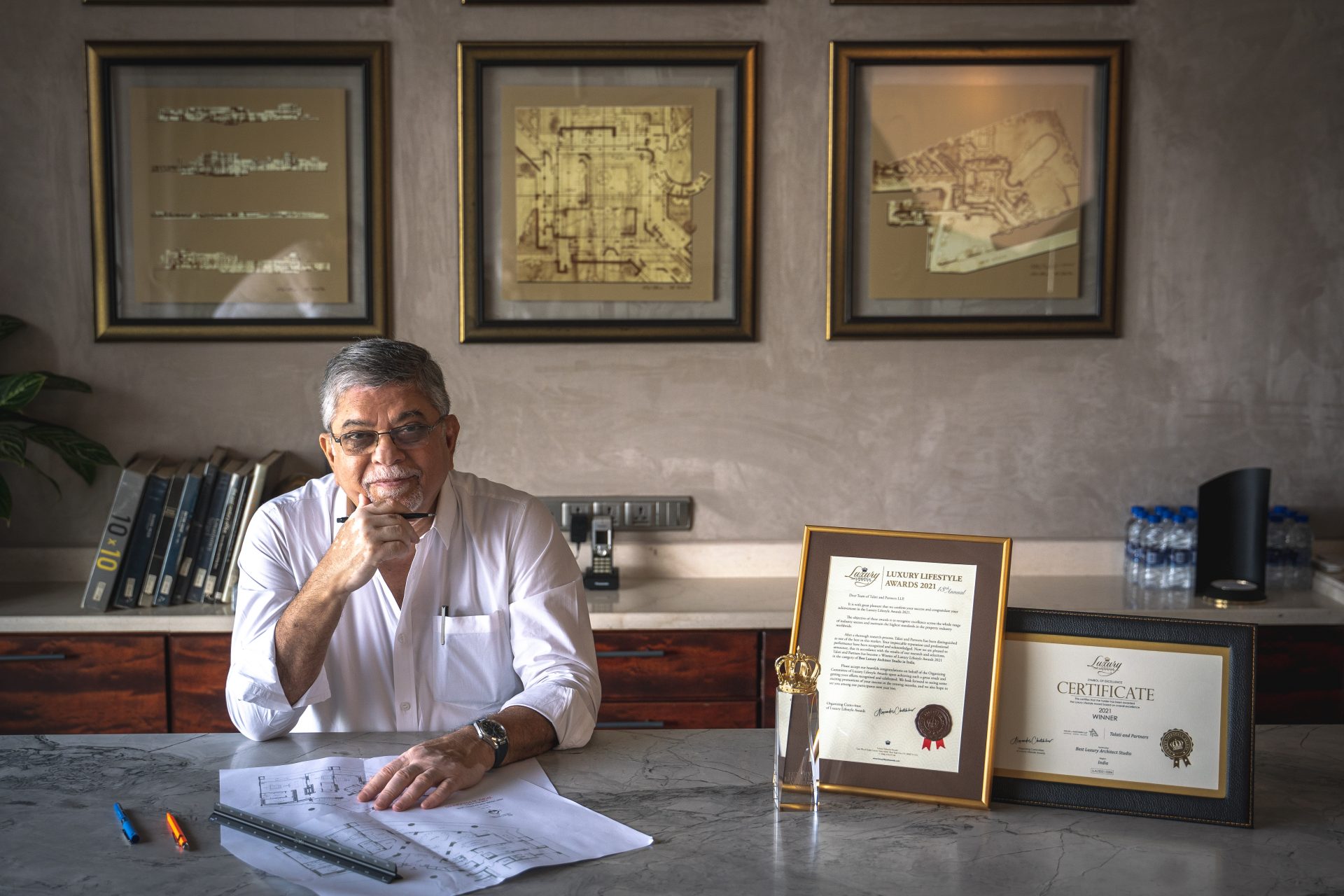
Talati and Partners, a Mumbai based architectural and interior design firm recently caught our attention, winning the Best Luxury Architect Studio in India this year. Known for their impressive portfolio spanning across continents, we caught up with Naushir DeVitre, their Vice-Chairman, to get a glimpse into the behind-the-scenes operation that’s earned them the acclaim.
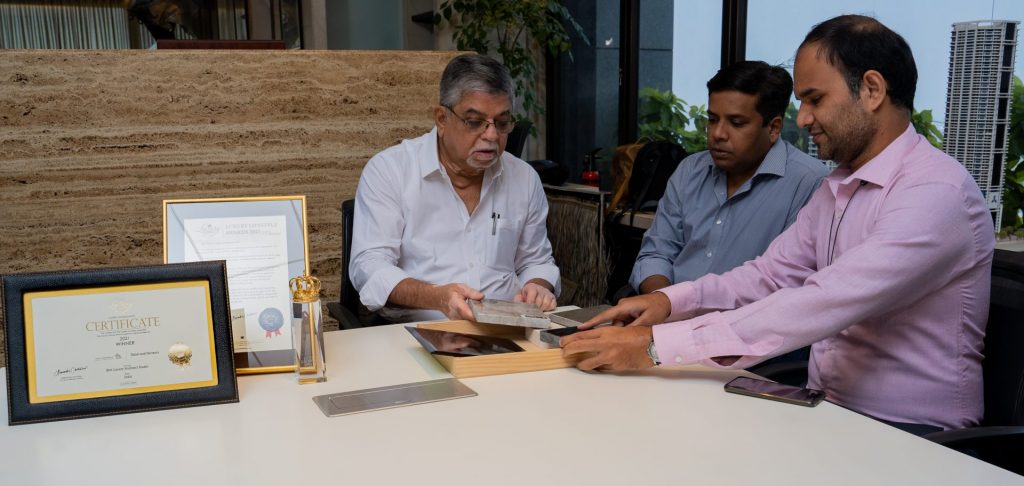
LLA: How long have you been at the helm of Talati and Partners?
TPA: It has been almost 57 years, Talati and Partners was established by our Chairman Emeritus Mr Noshir Talati, based on the philosophy on two simple things – People & Environment where every project is about the people, and in harmony with the environment that they inhabit.
LLA: Have you noticed recurring design themes throughout your industry’s history?
TPA: Yes I have. Whatever design themes that have proven to be popular, relevant and substantial in the past have always found a way to reoccur, however, these are usually fused with present and prevailing trends.
We at Talati & Partners, have always worked with an open mindset when it comes to newer themes and trends where we are welcoming to embrace the new age and its changing dynamics.
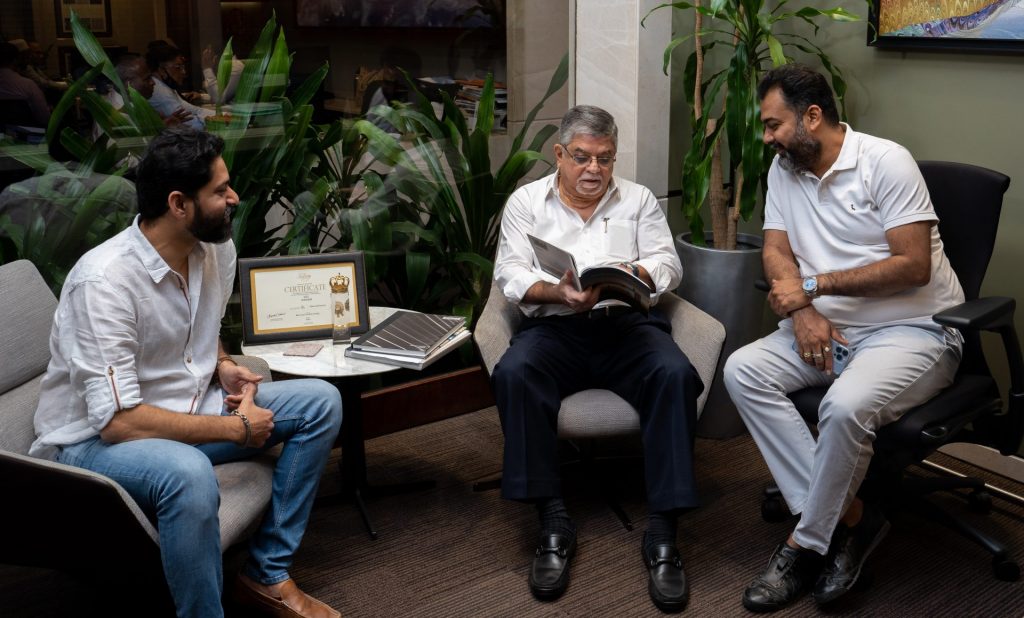
LLA: What would you say is the core distinguishing factor between TPA and your competitors?
TPA: With the emphasis on quality and ornate detailing as well as precision of design, all this being at the core of our firm’s belief system, I feel it is the firm’s combined capabilities, knowledge, skills, resources and infrastructure along with automated workflows and processes that distinguish us from our competitors.
LLA: What have been your greatest challenges throughout the COVID pandemic, and how have you navigated through it?
TPA: The biggest challenge was to maintain our company’s warm and engaging work culture remotely. We as a studio have an interactive approach to our design processes. We often have design debates amongst our teams where one of them presents their ongoing works to the other to receive critical feedback. Due to the COVID pandemic, the lack of physical interactions was challenging. But we overcame this by having online design review meetings every fortnight.
The younger talent always learns from their senior colleagues, but with the WFH culture, not everybody had that opportunity. For this, we started adding community-building exercises to weekly online staff meetings. Another key challenge was to avert employees from getting burned out, drained or less productive by the end of the day due to intense hours on a computer screen. Previously, coffee breaks or cafeteria conversations with coworkers were a breather, which was now missing. Therefore we started allowing employees to keep their videos turned off during meetings if required.
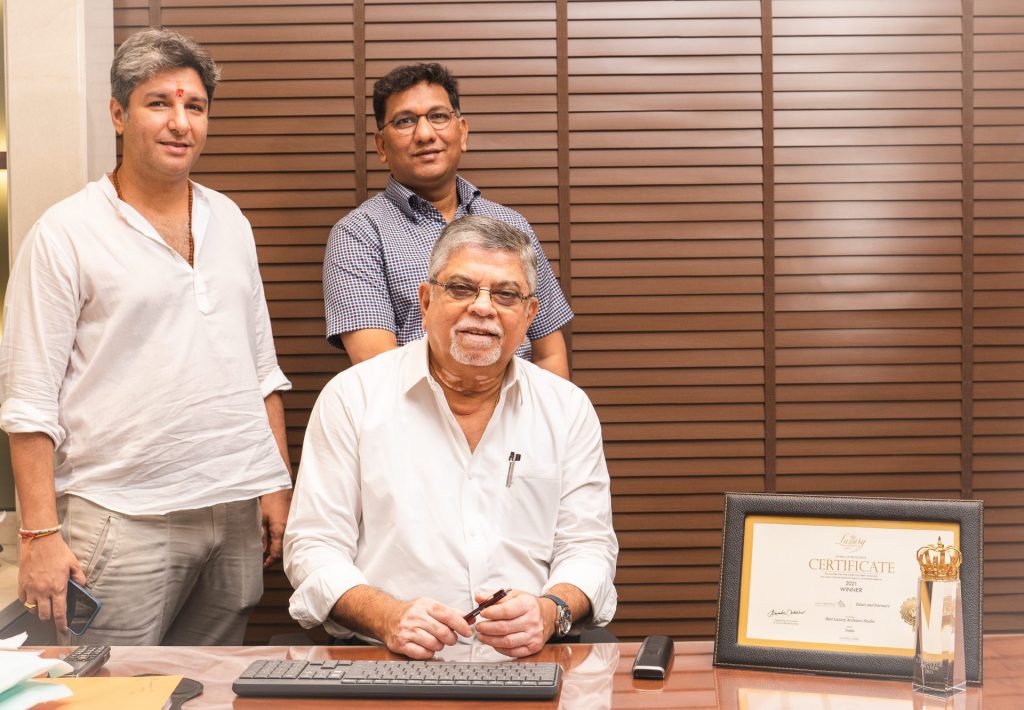
LLA: How do you keep your team inspired and energized for the job?
TPA: I put in complete faith and confidence in my design teams to manage projects on their own retaining their own sense of individuality in it. I include them in the big decisions and empower them to take their own calls. We at TPA never fail to recognize achievement and always incentivize with compensation or a prize, be it a couple of days off or even tickets to certain shows or events, etc. We believe in creating a positive and fun work environment with monthly team-building events to keep the workforce energized and inspired.
LLA: What qualities do you look for in new recruits?
TPA: We believe in creating valuable relationships and everlasting bonds, whether it’s with our clients or our employees, therefore we look for candidates who have long term potential. Since our design approach is very interactive, we look for team players who are enthusiastic and passionate about what they do. Knowledge of the latest software is very important as well, however, we believe a new skill can always be learnt and we usually have a lot of software skill development courses in the office. Lastly, the recruit should be fitting to the work environment and company culture.
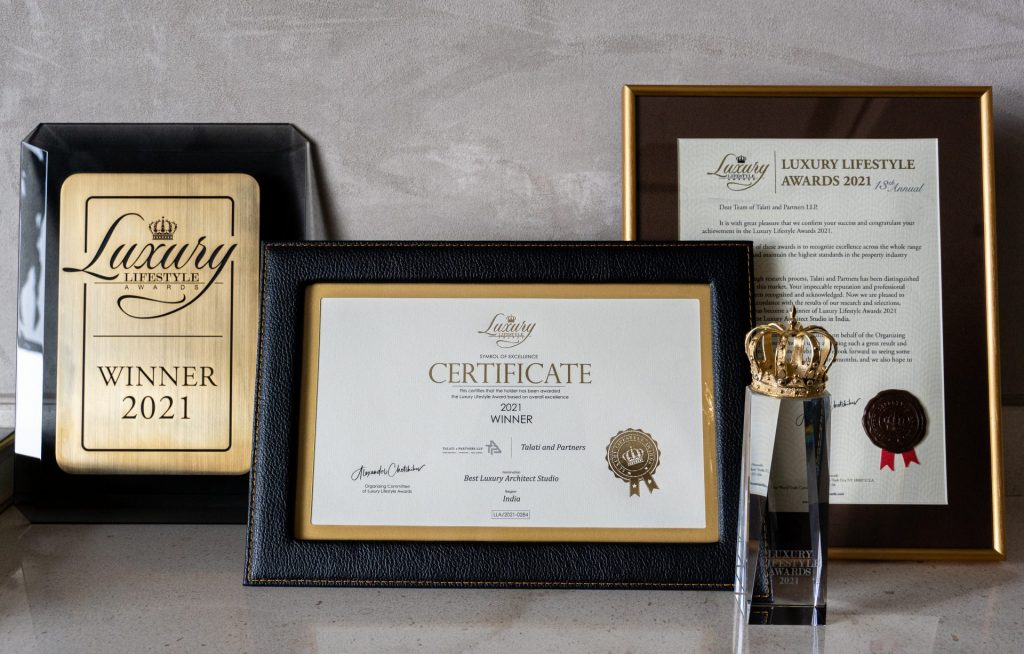
LLA: Where do you see the business in 3 years time, hopefully in a post-covid world?
TPA: We are a 50-year-old design firm that was established at a time when architecture was still an upcoming field in India, TPA has grown with the industry and, has helped the industry grow as well.
We are a premier design brand and are known for our designs and work ethic. Through the years we have successfully integrated ourselves into the fields of project management and property development, providing a set of holistic professional offerings to the client and the end-user. Therefore our goal for the next 3 or 30 years is to keep doing the good work that we are doing and grow as an international brand.
LLA: What or who has been your greatest source of leadership mentorship?
TPA: It will have to be our Chairman Emeritus Mr. Noshir Talati who has always led by example and has been a positive role model for so many Architects, including myself and Interior Designers. He has always been willing to share skills, knowledge and expertise, and has never held back in giving constructive feedback. He values others opinions and therefore, is respected by all his colleagues and employees; a true leader and mentor.
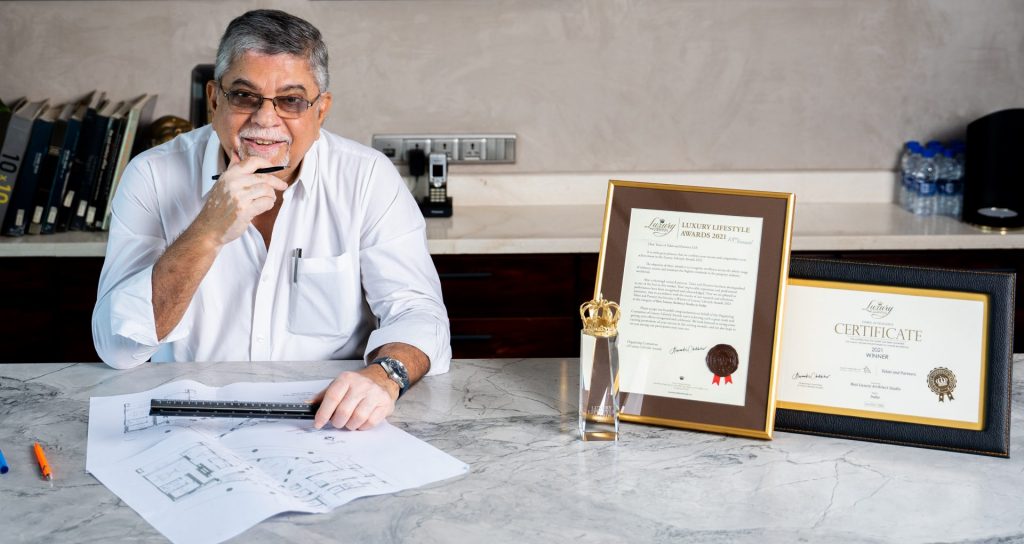
LLA: What are your future aspirations for the business?
TPA: Being well established in metropolitan tier-1 cities in India, we wish to grow our presence in Tier II and Tier III cities as well. We feel our brand and design sensibilities can add tremendous value to their real estate as well as uplift the overall built environment for the citizens. We also have an office in Oman that is doing very well, similarly, we would like to open other satellite offices and stretch our presence across the globe.
LLA: Are there any markets you are still wanting to break into?
TPA: Despite having done numerous projects overseas, we would still like to break into the markets of developing nations that can get gain from our years of experience, at affordable prices.
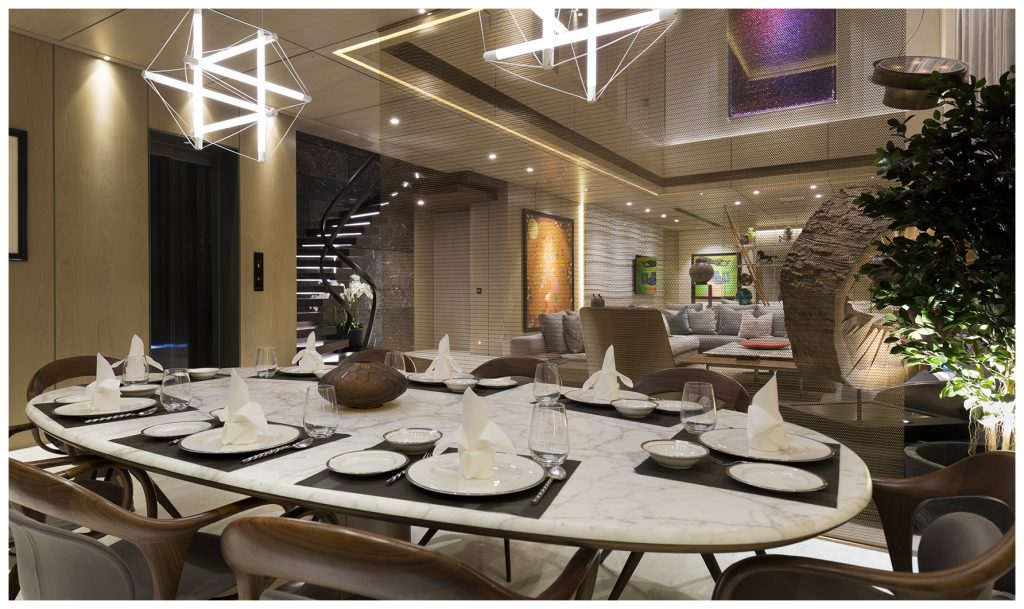
LLA: How do you see architectural trends adapting to the new world?
TPA: There is a focus on the importance of green infrastructure, energy efficiency and environmental awareness, therefore locally sourced materials and techniques will result in sustainable and affordable projects. On a larger scale, cities will continue to implement strategies to reduce the carbon footprint of construction and development. Smart cities as an architectural trend that will allow us to make efficient use of our resources, lower our consumption and build our cities to maximize efficiency providing people with safe, comfortable, and affordable places to live.
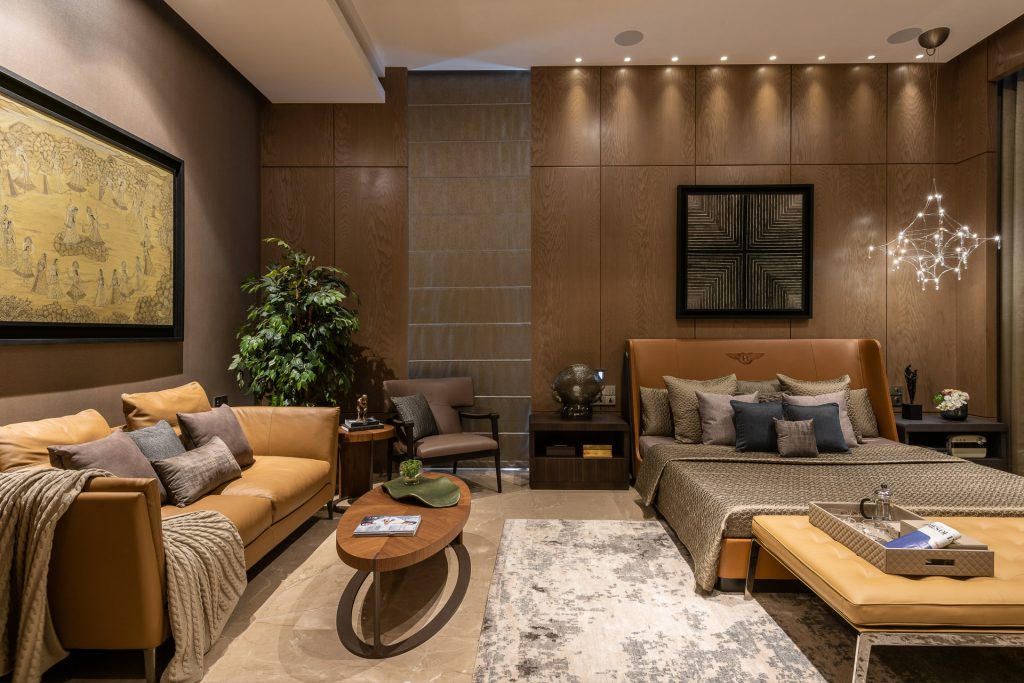
In the field of technology, Virtual reality (VR) will see rapid developments in the coming years. Another architectural trend is parametric design which will turn complex geometries into concrete realities. 3D-printed construction will greatly expand the limits of construction technologies. Automation will continue seeing a huge upsurge in smart home products that can elevate living. Another trend would be, Energy-efficient homes that will help address the urgent global warming crisis while saving finances on utility bills. Lastly, vertical cities will keep growing to address the fact that land is becoming scarce as the world’s population grows.
LLA: Do you have any advice for young, aspiring architects and interior designers?
TPA: Keep yourself updated with the latest technologies and materials, have a keen eye for detail and consider all senses when designing any space, whether it is a building design or an interior space.